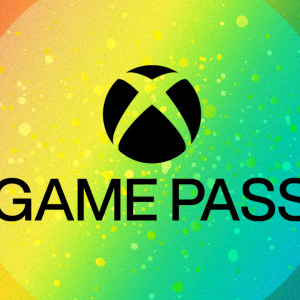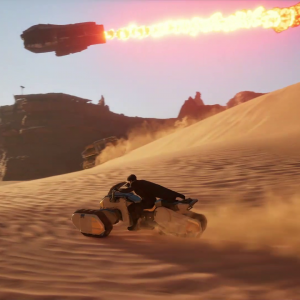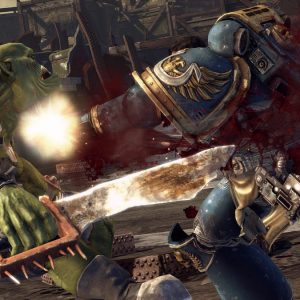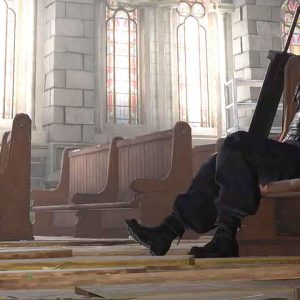Times & Galaxy, a choice-driven adventure game in which you play as a robot who is the latest intern for the solar system’s most trusted news holopaper, hits a little close to home for me. It delves into storylines anyone in online media will be familiar with, such as “your outlet is successful but not increasingly profitable and so you and many of your coworkers are being let go” or “you’re not being hired full-time and getting employee benefits but good news, your writing is good enough that your part-time contract is being renewed again.”
Copychaser Games’ upcoming title feels quite timely given the current state of the video game journalism industry. It’s not all doom and gloom, though, as most of the game seems geared towards exploring the joys of being a journalist and giving the player a sneak peek into the euphoric high that comes with finally getting that one quote you’ve been looking for, that one source who gives you what you need to print the reported story you’ve been chasing. There are also plenty of moments of levity and humor as well, keeping the mood from becoming too dour.
Ahead of its release, I played a demo for Times & Galaxy that included the opening levels of the game. Even if its formula does feel specifically suited for the experience of playing as an investigative reporter hunting for clues, Times & Galax’s gameplay isn’t wholly unique. Saying the right thing to the right person after discovering the right clue when you travel to the right spot is a hallmark of almost all choice-driven adventure games after all. But it’s how Times & Galaxy frames this familiar gameplay setup that makes the experience interesting.
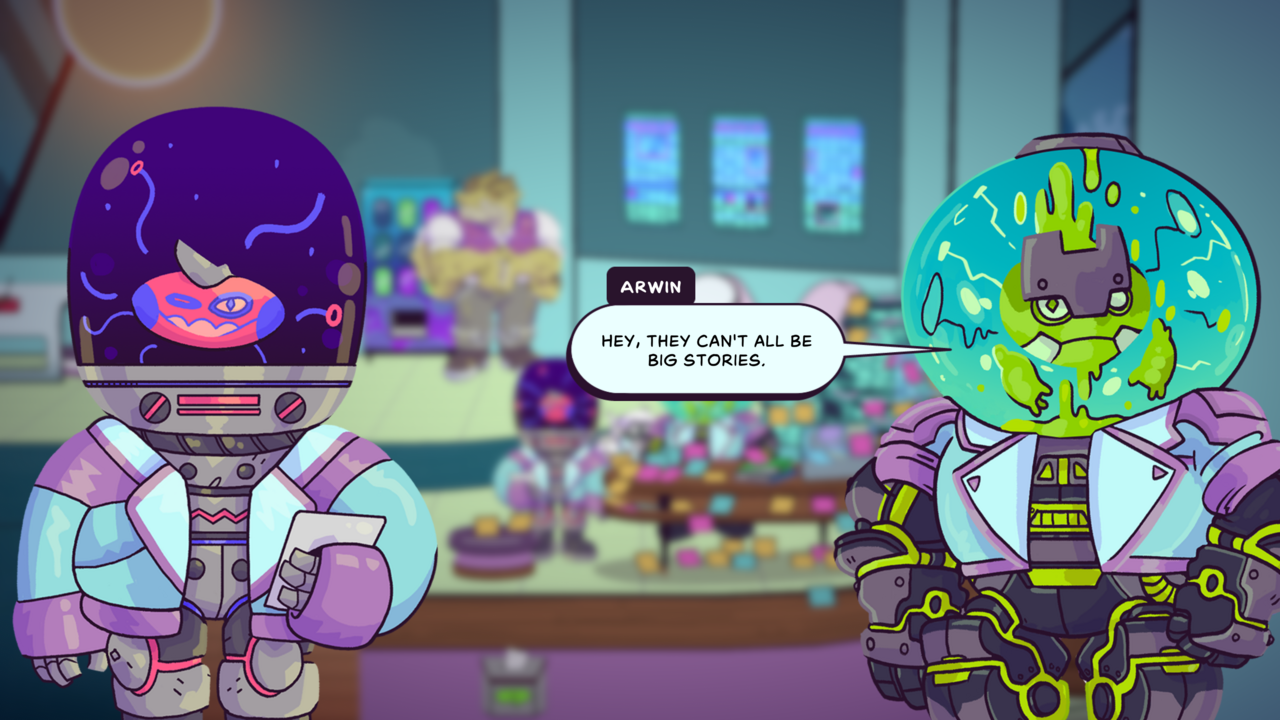
Every clue you uncover or quote you hear informs how you can frame the headline, lede, nut graph, and key quote of your piece, as well as how you’d like to flavor the text. Do you go more sensational, for instance, or perhaps informative? So for some of the stories you’re writing, there aren’t just a handful of potential outcomes for you to put together, there are dozens of options to discover and unlock–I counted over 60 in one instance. You have a lot of agency and, more importantly, a lot of responsibility in how you shape the outcome of each assignment. Pursuing certain lines of investigation will prevent you from others, encouraging you to be mindful of who you’re talking to and how you’re asking them questions.
“There aren’t a lot of games that tackle the subject of journalism,” Copychaser Games lead Ben Gelinas told GameSpot. “The ones that do tend to be very focused on the editor role, the spin, and less about the news gathering and less about the craft on the front end. So one of the themes that we’re going for is more boots on the ground.”
In this way, Times & Galaxy’s gameplay scratches at the heart of how journalism is traditionally done, from the challenges a reporter faces in tracking down a quote for a story to the balancing act of wanting to write to inform and educate without going so cut-and-dry that you end up being boring and difficult to read. It’s a bit more of a nuanced debate than choice A or choice B when you’re writing an article, and that’s an experience that Copychaser Games wanted to convey.
It makes sense given the pedigree of the developer leading the team on Times & Galaxy. Gelinas is an ex-BioWare writer and editor who worked on the likes of Mass Effect and Dragon Age–he’s quite familiar with interactive choice-driven narrative experiences. And before his time at BioWare, Gelinas worked as a local crime reporter for the Edmonton Journal newspaper, giving him firsthand knowledge on the ins and outs of writing for a paper.
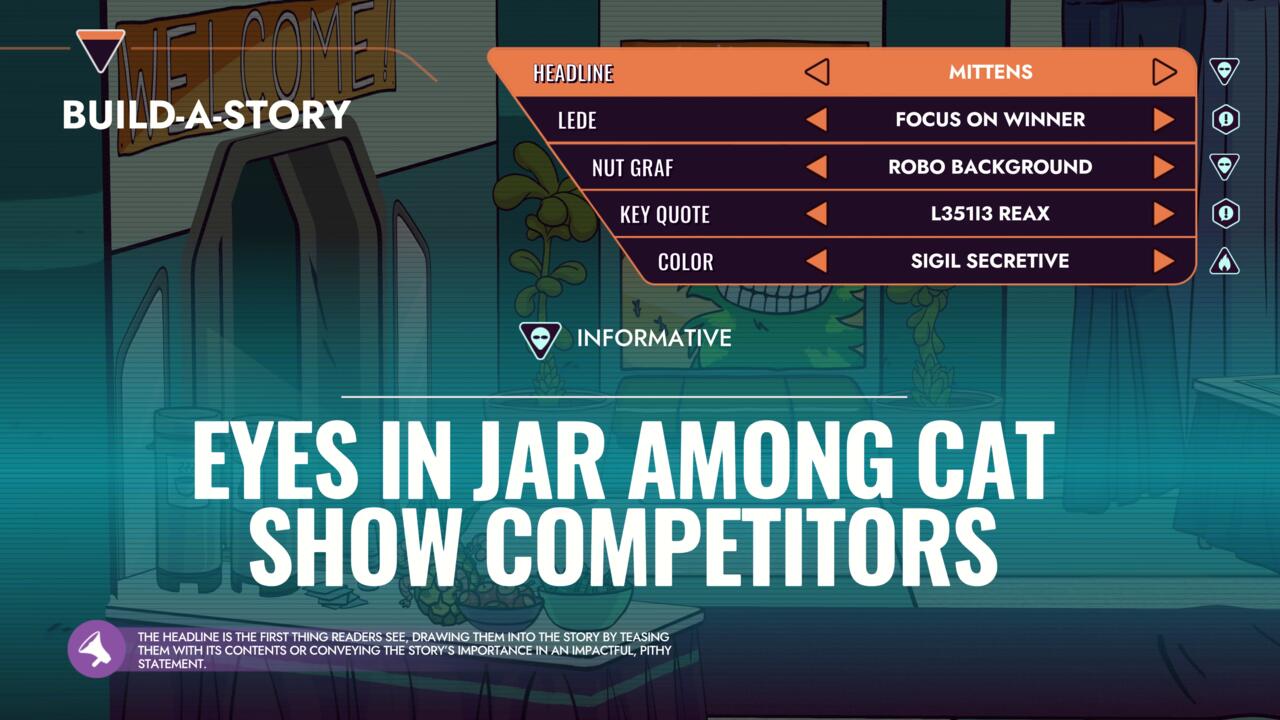
“We really wanted to get away from the black and whiteness of it,” Gelinas said, noting that Times & Galaxy’s choice-driven narrative needed more nuance than games he’d written on before, like Mass Effect. “Paragon and Renegade, one or the other, is tricky because then we have to cut responses into two [choices] and there was a lot of nuance lost in the middle. There’s a lot of that [nuance] in reporting that gets lost on the audiences. They don’t necessarily see the internal turmoil of people that are gathering the news and trying to figure out what’s important, what’s not. It’s a challenge. I wanted to show that and gamify it, but I didn’t want it to be boring and I didn’t want it to be a sim.”
Gelinas points to his time on the crime beat as one of the major inspirations for the first level of Times & Galaxy, in which you’re assigned to investigate a space shuttle that crash-landed after being chased by police. Though not depicted as gruesomely as the real deal, Gelinas compares the assignment to violent car crashes he covered in the past. As I played through the level, I uncovered evidence that the crashed shuttle strangely didn’t have a pilot cockpit, that maybe it had been the police’s fault it had crashed in the first place, and that no one had died but several nearby explosives meant that there could have been quite a few. You can imagine the many different ways I could have spun a story like that, and that was before I uncovered proof of immoral experimentation, corporate corruption, and the spark of a robotic rebellion. You can’t cover all of it, and if you try to include too much, it will weaken the effectiveness of your writing and analysis. That, in turn, will impact your future at the paper and the future of the paper itself.
“What you do in this game, how you conduct yourself, and the stories you write have an effect on the paper’s success, the paper’s readership, and its focus,” Gelinas said. “The end of the game will be branching in a few directions depending on the choices you made throughout the game in terms of the kinds of coverage you’ve focused on and the ways that you’ve conducted yourself. Different people [at your job] also share different beliefs about what news is and what’s important. So if you’re going more sensational, there are characters who will be disappointed in that and disappointed in you and might not like you as much. There are other characters that will be like, ‘Yeah, we’re blowing the dust off this old holographic broadsheet.'”
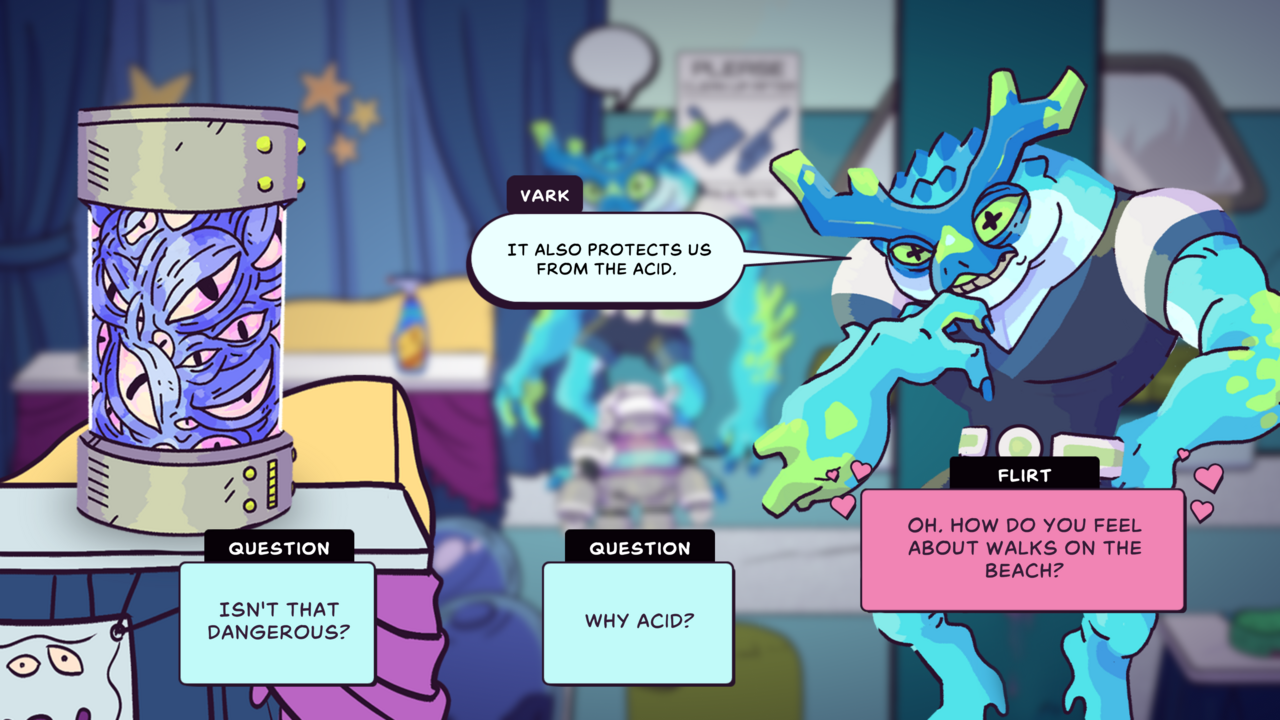
He continued: “I’ve only ever worked for broadsheets before I got into games, but I really didn’t want to outright make tabloids the wrong choice, to make that kind of journalism the wrong choice. I just wanted to show how you can take the same information and prioritize different angles, different aspects of it to appeal to different people, and in some cases bend your ethics, not necessarily always on the sensational side. Sometimes you can easily bend your ethics to get that super informational piece, that super big fact that you’re betraying your source to get in there. I wanted to bring in all of that to just show how messy the craft of journalism really is.”
I’m looking forward to the full game just to see how all the outcomes play out. Gelinas teased that, beyond a shuttle crash, you’ll be covering stories like cat shows, which sounds deceptively too cute. There has to be more to it than that! Plus, the game features chances to flirt with characters and start romances with them, and who knows how that might ultimately affect the endings of the game. Times & Galaxy is scheduled to launch for PC in 2024.
The products discussed here were independently chosen by our editors.
GameSpot may get a share of the revenue if you buy anything featured on our site.

